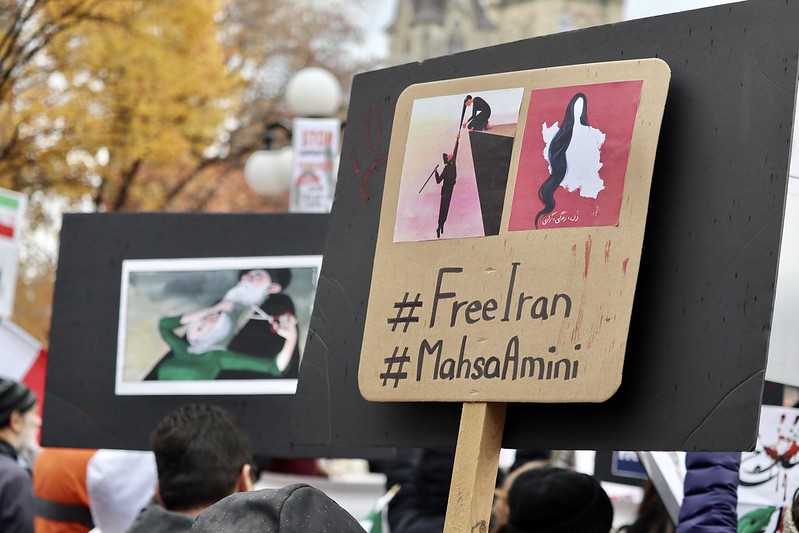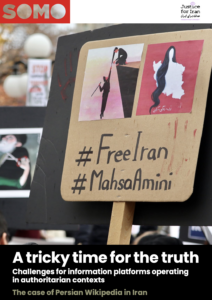
Wikipedia’s challenges in Iran
Wikipedia has become an indispensable tool for communication, education, and access to knowledge. But its omnipresence also raises concerns about the potential for abuse and manipulation, particularly in authoritarian regimes where freedom of expression is restricted.
-
 A tricky time for the truth (pdf, 795.75 KB)
A tricky time for the truth (pdf, 795.75 KB)
In A tricky time for the truth, SOMO and Justice for Iran(opens in new window) (JFI) took a closer look at Persian Wikipedia. Like its counterparts in other languages, the Farsi version of the online encyclopedia is a collaborative project, relying on the contributions of volunteers to create and maintain its content. However, there are concerns that this open structure has been exploited by pro-Iranian state actors who are using it to spread disinformation and suppress dissent.
Bloody November Iran 2019
SOMO and JFI raised the issue for the first time in 2019, following a report by OpenDemocracy and our own follow-up investigation. However, the Wikimedia Foundation, the non-profit organisation behind Wikipedia, initially dismissed our concerns. Wikimedia Foundation has since acknowledged shortcomings in its human rights due diligence policies and practices and sought to improve these.
One particularly notorious example of state interference with Wikipedia featured in our discussion paper is the removal of content that was critical of the Iranian government in the wake of the “Bloody November(opens in new window) ” protests. In 2021, a Wikipedia administrator with ties to the government deleted a page about the role of an Iranian army Commander in the suppression of these protests, which had led to the deaths of an estimated 1,500 Iranian citizens.
This has by no means been the only case of Iran’s interference with the platform. The same Wikipedia administrator has deleted content alleging human rights violations on at least seven Iranian officials’ pages. JFI has documented how an extensive network of Persian Wikipedia users actively censors and removes factual content on the platform, particularly reports of corruption by Iranian state officials and their involvement in severe human rights violations.
The Wikimedia Foundation has taken some measures aimed at improving its due diligence practices. In 2022, it published its first Human Rights Impact Assessment, which made recommendations to deal with several risks associated with Persian Wikipedia. Still, many risks and vulnerabilities remain.
How can Wikipedia operate responsibly in Iran?
Our discussion paper provides a number of recommendations for Wikipedia and other information platforms that operate in challenging, authoritarian contexts.
We urge the Wikimedia Foundation to strengthen and align its human rights policies with the UN Guiding Principles and the OECD Guidelines. These standards require social media and information platforms to conduct human rights due diligence to avoid infringing on or being linked to violations of internet freedoms and avoid propagating misleading or false information.
More concretely, on its non-English platforms and in risky contexts, Wikimedia should consistently prioritise countering disinformation and maintain the same quality standards it has for its English language version.
To better address risks and act upon these timely, the platform would greatly benefit from communicating about its decisions more often and openly with the public.
Read all the recommendations in our discussion paper.
The authors can be reached by email for comments:
Omid Shams
Joseph Wilde-Ramsing
Do you need more information?
-

Joseph Wilde-Ramsing
Advocacy Director


